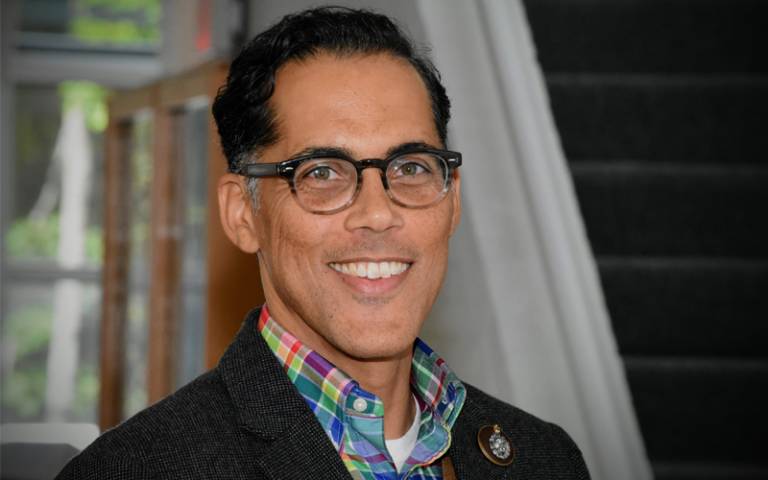Opinion: Colonial slavery shaped modern Britain, and we all live with its legacies
18 June 2020
Professor Matthew Smith (UCL History), Director of the UCL Centre for the Study of the Legacies of British Slave-ownership, writes about the UCL Legacies of British Slave-ownership project and its mission to improve understanding of slavery around the world.

The UCL Legacies of British Slave-ownership project was established in 2009 with the aim of exploring and documenting some of the ways in which colonial slavery shaped modern Britain.
Through the project, we published online a record which, for the first time, revealed the identities of 47,000 slave-owners who, at the abolition of slavery in 1833, claimed compensation of £20 million for the loss of their "property" – their possession of women, men and children in the Caribbean.
We have also tracked another 13,000 or so involved in slavery since the mid-18th century.
Researching and analysing who these people were and their legacies – economic, cultural and political – are key to understanding the extent and limits of slavery's role in shaping modern British society. These legacies reach into the present in diverse ways.
As such our project can never be, and should not be, a disinterested examination of the past. Reparative history charges us to explore and understand the past in order to address the ways in which injustices may be acknowledged and set right.
No one can deny the urgency and importance of this work. We look at the state racism evident in the Grenfell tragedy and the Windrush scandal in the UK or the long history associated with the idea of a "hostile environment" towards immigrants.
We reflect on the gross inequalities revealed by the coronavirus pandemic in which those of black or ethnic minority heritage are disproportionately blighted or killed by the illness.
We see and hear the anger of many outraged by the persistent presence, across Britain, of memorialisations to those like Edward Colston, who was involved in the slave trade and slavery, while efforts to commemorate those who were the victims of slavery or fought against it have faced many blockages.
It has been our mission to encourage a deep and rounded understanding of what centuries of black enslavement has meant for nations, societies, and peoples. The shadows of the history of slavery and racialised injustices follow us all.
The present moment demands that we maintain an active engagement with the roots of that history and their insidious manifestations today. This is an unshakable aspect of the intellectual commitment of the work of our research centre, and one that we intend to advance through new research, public engagement, and activities with our community of collaborators within and outside the UK.
Ours is an educational and research project building, with many others, a new understanding of the past and its life in the present. We are moving beyond a focus on slave-owners to document the lives of the enslaved – so far as possible to recognise the humanity and individuality which was denied them by slavery.
This is a history which we have all been shaped by, albeit unequally: understanding that is a responsibility for all of us so that we may, as a society, do things differently.
This article was first published in the Telegraph on 17 June.
Links
- Professor Matthew Smith’s academic profile
- UCL Department of History
- UCL Faculty of Social & Historical Sciences
- Centre for the Study of the Legacies of British Slave-ownership
 Close
Close

